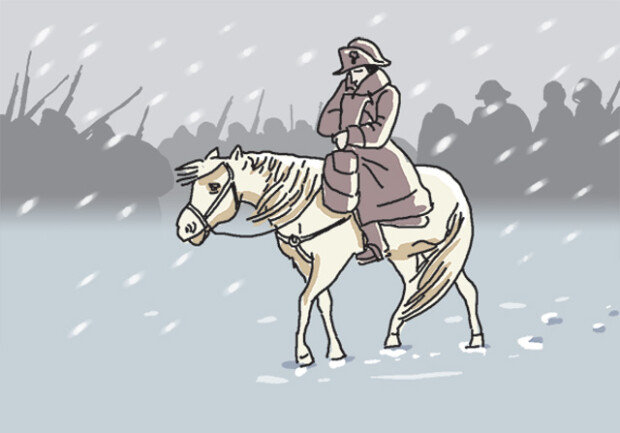Napoleon and his strategic failure
Napoleon and his strategic failure
Posted September. 22, 2020 07:30,
Updated September. 22, 2020 07:30

It was on September 14, 1812, when Napoleon entered Moscow. His army had marched thousands of kilometers over three months since war began. Napoleon’s expedition to Russia, which cost the lives of too many French soldiers, was later subjected to enormous criticism. Even the few battles in between were half success at best. This meant the legendary French commander’s invasion to Russia was a massive fiasco eroding his reputation. But the achievements he made before Moscow must not be underestimated.
The pace of his marching was even greater than that of Germany’s mechanized army. Admittedly, the German troops wasted time in Leningrad and Ukraine instead of heading straight to Moscow, but even if they had advanced to the Russian capital as sole destination, their arrival wouldn’t have been much earlier than Napoleon’s army.
Tragedy began to befall them after entering Moscow. Napoleon assumed Russia would have come to the negotiation table once the capital falls, but Russia dug its heels in instead. That proved his strategy was a total fallacy. But the French military leader did not and would not admit it. He just sat on his hands waiting for a Russian delegate instead of ditching the plan or devising a new strategy. It took 35 days before Napoleon recognized his own failure and began to pull out. But the winter had already come close. His troops were devastated both by the cold snap and the chase of Russian soldiers. Among the men who made it to Moscow, only one tenth of them came back alive. Some estimates hold that if Napoleon had pulled out a week earlier, the number of survivors would have doubled if not tripled. Tens of thousands of men froze to death in the last week alone.
Strategic failures are instantly proved by the result of battles, but such failures are hard to identify and even harder to swallow. One often turns a blind eye to reality even in midst of repeated defeats. The sense of conviction that they will eventually prevail and the blind faith that they are doing the right thing are the recipes for a downfall.
Napoleon had been nimble and precise before he was crowned. It was his power that caused the fiasco. Addiction to power can be even more pernicious than drugs.







